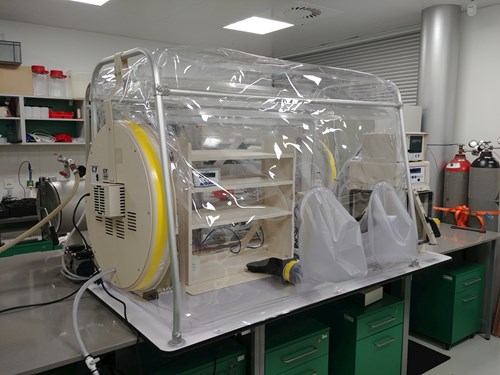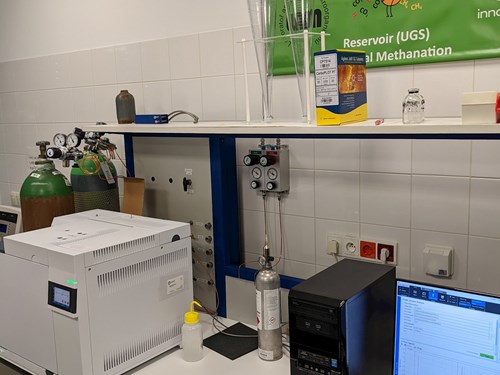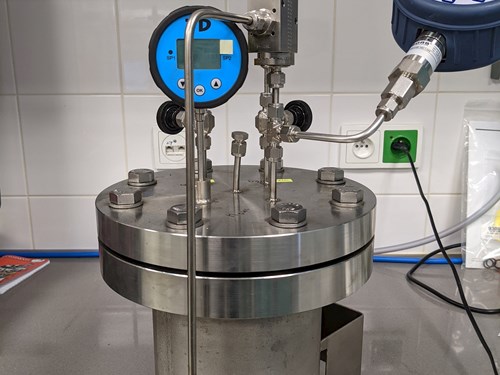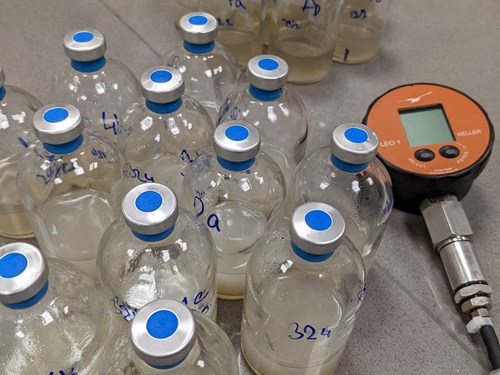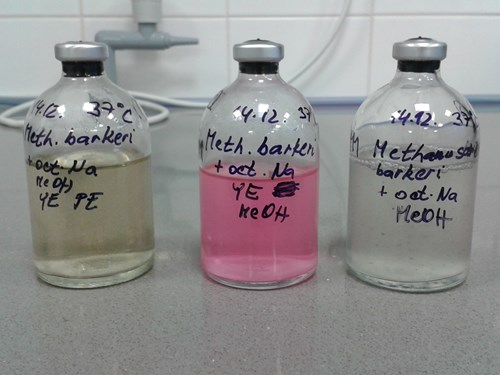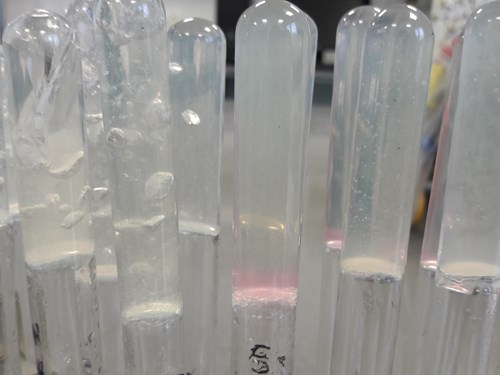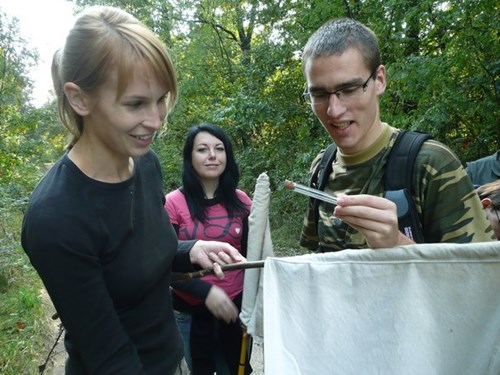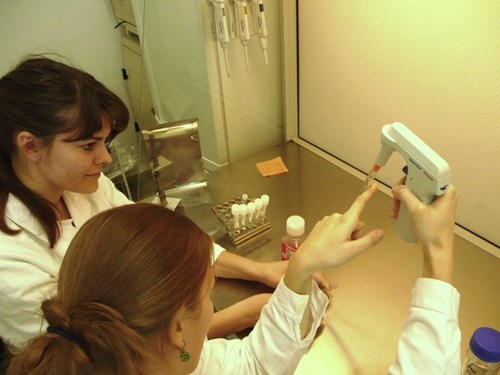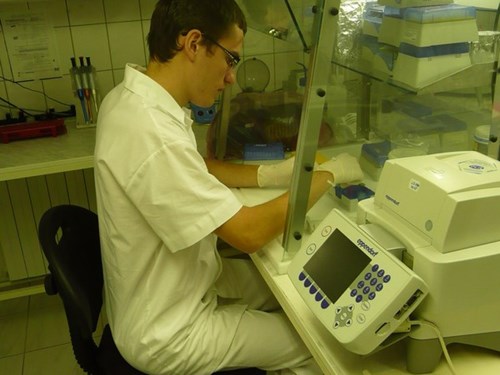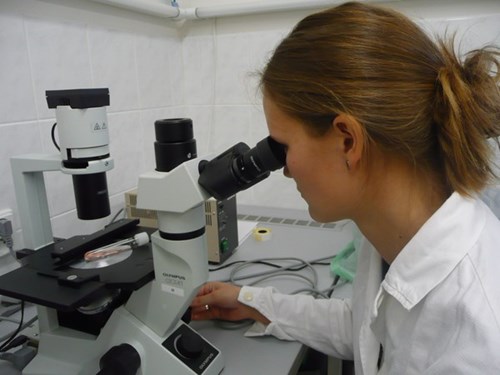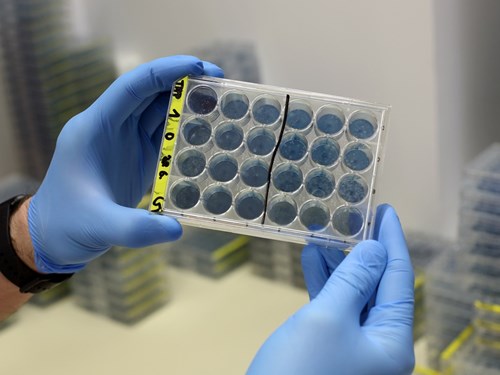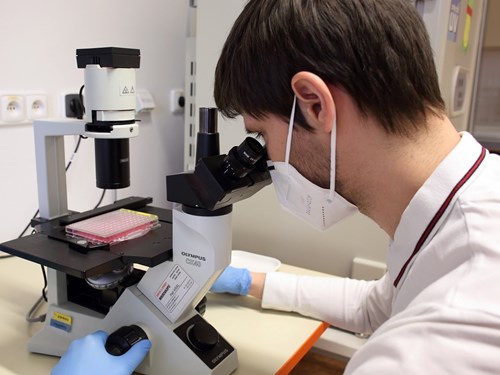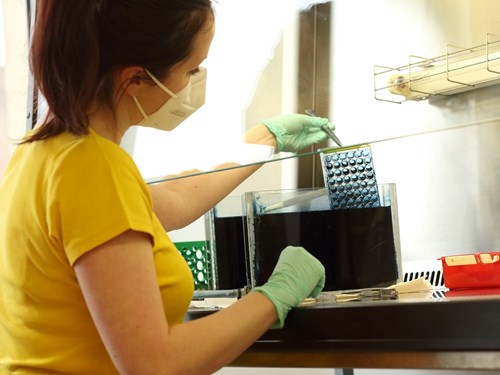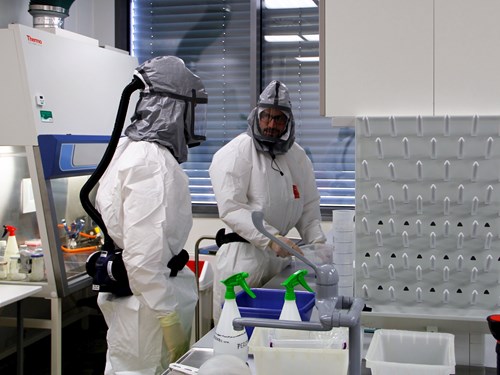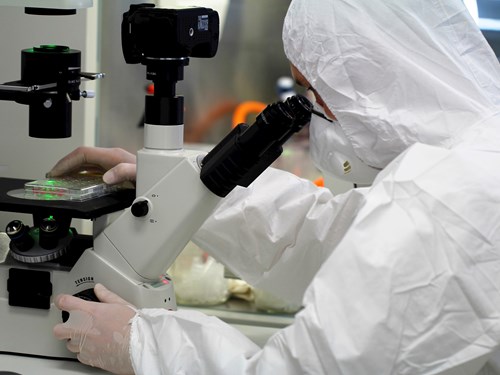
Research at the Section of Microbiology
Laboratory of Anaerobic Microorganisms
The Laboratory of Anaerobic Microorganisms (LAM) at Masaryk University, Czech Republic is focused on research in the field of anaerobic bacteria and archaea. These anaerobic microorganisms are very often key players in the environment and they have important role in geo-elemental cycling, agriculture, waste management and medicine.
The main topics of interest of LAM are biochemical and ecological aspects of anaerobic process of compounds transformation, stages and microorganisms that participate in methane fermentation process. We are studying the physiological and biochemical properties of new strains isolated from biogas reactors, including sulfate-reducing bacteria and methanogenic archaea. Moreover, we focus on study intestinal sulfate-reducing bacteria, which can cause inflammatory bowel disease including ulcerative colitis as well as investigation of natural and chemical compounds activities against these microorganisms. We have a strong emphasis on anaerobic prokaryotes because they can have new and unique properties. It can be relevant for various applications in industrial areas as well as for the basic research. Present members of LAM include scientists, students and supporting staff. There are active interactions with laboratories and departments of Masaryk University and other universities, while the members of LAM participate in many international projects.
We are interested in characterizing novel anaerobic metabolisms, discovering of novel taxa, understanding the diversity and structure of anaerobic ecosystems, determining the regulatory mechanisms controlling the anaerobic way of life and the establishment of multispecies consortia. Our results should lead to novel technologies for energy production, waste treatment and polluted environment remediation.
Contact person
doc. Mgr. Monika Vítězová, Ph.D.
Laboratory Head
Kamenice 753/5
625 00 Brno
| phone: | +420 549 49 7177 |
|---|---|
| e‑mail: |
Laboratory of Zoonotic Microorganisms
The Laboratory of zoonotic microorganisms closely collaborates with the Department of Medical Zoology of the Institute of Vertebrate Biology of the CAS Brno at its detached workplace at Valtice, South Moravia. The main area of laboratory research is the study of ecology, taxonomy and serology of microbial agents of chosen zoonosis (mainly viruses, bacteria and protozoan) transmitted by hemophagous arthropods using classical and molecular biological methods. The Laboratory provides student education for bachelor, master and doctoral degree of General Microbiology, specialization Microbiology including theses supervision.
Currently the laboratory focuses mainly on basic research of agents transmitted by hemophagous arthropods (for example Flaviviridae West Nile and tick-borne encephalitis, bacteria Borrelia burgdorferi and Anaplasma phagocytophilum, or protozoan Babesia spp.). The research results contribute to better prophylaxis of infection diseases of vertebrates including surveillance of chosen zoonosis. The Laboratory also offers lecture and practicals of the subject Microbial zoonosis (Bi8011; Bi8011c).
Contact person
prof. RNDr. Ivo Rudolf, Ph.D.
Laboratory Head
Kamenice 753/5
625 00 Brno
| phone: | +420 549 49 3330 |
|---|---|
| e‑mail: |
Laboratory of Virology
The Laboratory of Virology closely cooperates with the Veterinary Research Institute in Brno and the Institute of Parasitology, Biology Centre of the Czech Academy of Sciences in Ceske Budejovice. The main research area of the Laboratory of Virology is molecular pathogenesis of medically important viral infections, especially tick-borne encephalitis and other diseases caused by flaviviruses, as well as other exotic and emerging viral diseases in humans and animals. The Virology Laboratory is also involved in the development and testing of new antibodies for preventive or therapeutic use, a new generation of antiviral vaccines and antiviral drugs.
We are interested in the mechanisms by which neurotropic viruses cross the blood-brain barrier and enter the brain as a target organ. The interactions between viruses and cells in the central nervous system and the immune response to infection are also being studied. We are investigating the role of host genetic background in determining the severity and clinical presentation of viral infections. We are working on the development of new antiviral vaccines and drugs and investigating their mechanisms of action and strategies of viral resistance. We are searching for novel biomarkers associated with viral infections that could be used to diagnose or predict disease severity.
The results of our research expand our knowledge of viral diseases, but also have practical implications for the prevention and treatment of viral infections in humans and animals.



